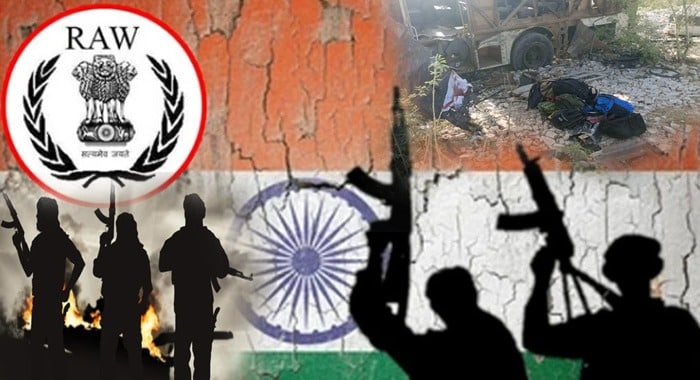A sinister plot of cross-border terrorism has once again been unveiled as security sources confirm that Indian-sponsored proxies are actively fuelling a fresh wave of violence in Pakistan’s Balochistan province. Following their historic defeat in the decisive “Operation Bunyānum al-Mursoos,” the Indian establishment, gripped by frustration and political desperation, has doubled down on its covert operations through banned terrorist outfits.
According to top security officials, Indian intelligence agencies are not only financing these proxies but are also providing them with training, arms, and strategic support. These proxies orchestrate attacks while offering safe havens and even medical assistance to militants linked with banned organisations. Shockingly, sources revealed that Indian-backed proxies maintain clandestine contacts with official Indian entities.
The propaganda machinery of the Indian state is also complicit. In a disturbing pattern, Indian media outlets are often the first to report terrorist attacks in Pakistan, raising serious questions about prior knowledge. This information warfare is used to manipulate global narratives and legitimise state-sponsored terrorism under the guise of regional security.
Even more audaciously, prominent Indian news anchors have suggested setting up offices for banned Pakistani outfits in New Delhi, urging the Indian government to provide them with state-level support in an effort to destabilise Pakistan’s territorial integrity and internal sovereignty.
This alarming revelation comes just days after Lt. Gen. Ahmed Sharif Chaudhry (DG ISPR) and Interior Secretary Aftab Durrani publicly presented two decades of concrete evidence on Indian state-sponsored terrorism. In a joint briefing, they held the Indian state directly responsible for the recent uptick in terrorist attacks, particularly the May 21 suicide bombing on a school bus in Khuzdar, which has been definitively linked to Indian operatives.
In response, Pakistan has raised the issue at the United Nations Security Council, urging the Indian government to abandon state terrorism and instead engage in meaningful and results-oriented dialogue, especially on the long-standing Jammu & Kashmir dispute. However, judging by the Modi regime’s continued reliance on lies, propaganda, and destabilizing plots, peace seems far from their agenda.
Security analysts warn that India’s war hysteria, fuelled by extremist media and military circles, now poses a serious threat not just to Pakistan but to regional peace and human rights at large.





